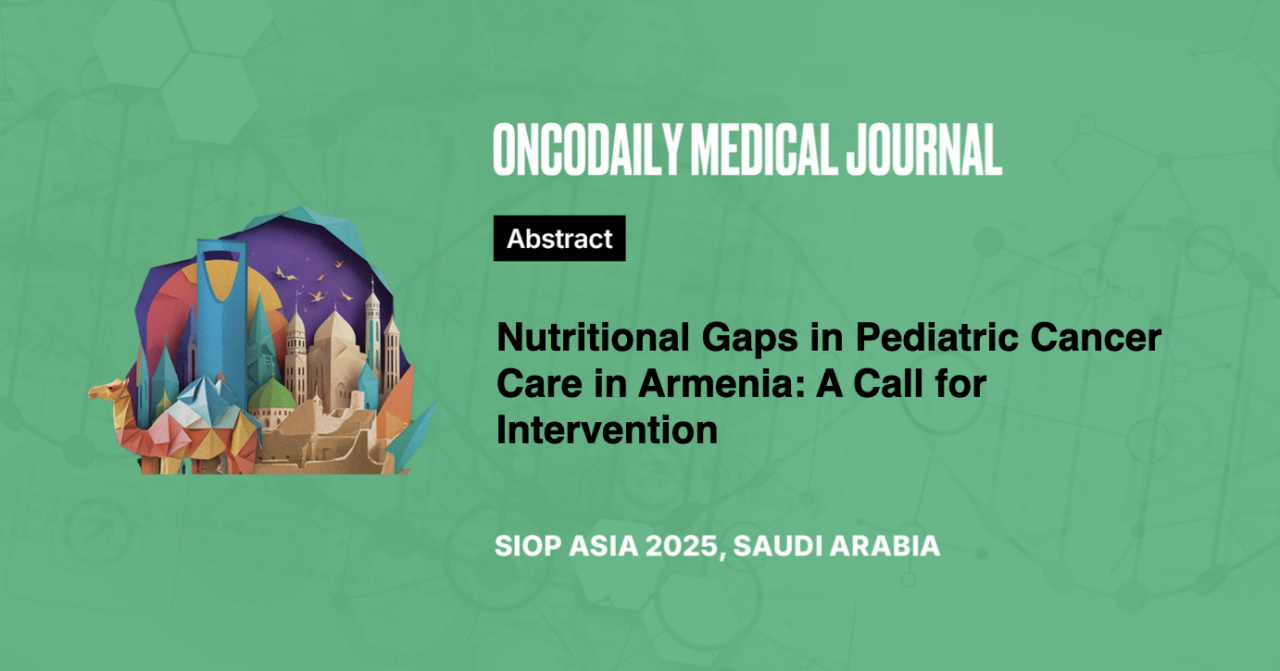Nutritional Gaps in Pediatric Cancer Care in Armenia: A Call for Intervention
Abstract
Introduction: In 2019 Armenia advanced pediatric oncology by centralizing care at Pediatric Cancer and Blood Disorders Center of Armenia (PCBDCA). While the Health Foundation for Children of Armenia and City of Smile Foundation support nutrition products and daily meals for hospitalized children, PCBDCA has lacked a comprehensive nutrition program until now.
In 2024, the International Initiative for Pediatrics and Nutrition partnered with PCBDCA to implement a nutrition program delivering dietary interventions. This study will assess the nutritional status of patients treated at PCBDCA, directing the needs of the nutrition program.
Methodology: During a one-month pilot in November 2024, anthropometric data from 100 patients aged 0–19 years at PCBDCA were analyzed. Body mass index (BMI)-for-age z-scores were calculated using World Health Organization (WHO) growth charts. Mid-upper arm circumference (MUAC) z-scores classified nutritional status using WHO standards for children under 5 and Mramba et al. (2017) references for older children.
Results: The cohort’s median age was 8 years, with a female-to-male ratio of 0.79:1. The most common diagnoses were acute lymphoblastic leukemia (41%), central nervous system (CNS) tumors (10%), and acute myeloid leukemia (7%). BMI-for-age analysis revealed that 8% of children were wasted, 83% were healthy, and 12% were overweight/obese.
Among patients with hematological malignancies, 4.9% were wasted, 81.6% were healthy, and 13.3% were overweight/obese. Among patients with CNS tumors, 28.5% were wasted, 57% were healthy, and 14.2% were overweight/obese. In case of solid tumors, MUAC measurements showed that 78% were healthy, while 21.9% were wasted.
Conclusion: This study highlights the dual burden of undernutrition and overnutrition at PCBDCA. Wasting and overweight/obesity were highly prevalent in children with CNS tumors and high rates of wasting were found in children with solid tumors. These findings underscore the importance of implementing a comprehensive nutritional program as part of routine care in Armenia.





